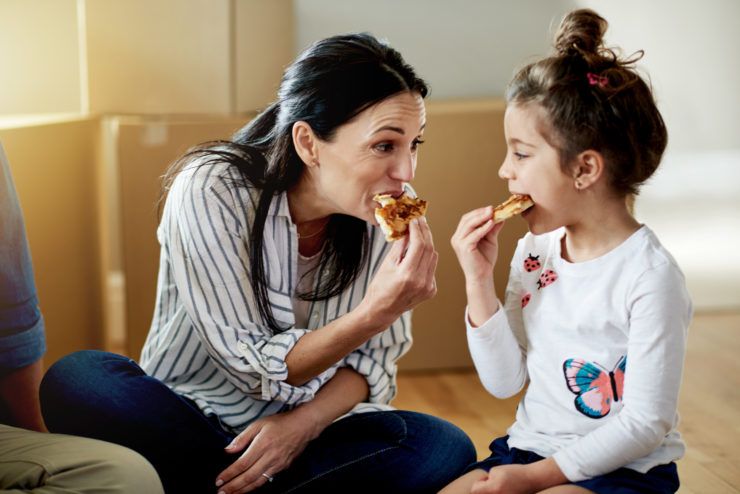Weight Watchers recently released a food tracking app for kids. They’ve received major backlash, and people are saying it creates an unhealthy relationship with food in our children.
Miki Eberhardt, a registered dietician, shares five ways we can raise our kids to have a healthy relationship with food.
Find more of Miki’s insight on Instagram, @nutritionbymiki
Help Your Kids Have a Healthy Relationship With Food
Never Put Your Child on a Diet
1 in 4 children that diet end up with an eating disorder. That’s a scary statistic, and it’s a risk that we can’t take with our kids. When people diet, it’s inevitable that they’re going to rebound. When weight loss is done in restriction, studies show that the weight will be regained. That causes a lifetime of weight cycling. Many people’s issues with food started when they were kids, and their parents put them on a diet.
Stay in Your Lane
We need to distinguish the two roles we have as parents and children. As a parent, our role is to provide a variety of food at reliable times throughout the day. The kids know they’re going to be getting meals and snacks. A child’s job is to decide what they’re going to eat from what’s being offered, and how much to eat. We need to let them make that decision. The problem comes when we try to tell our child how to do their job.
Avoid Food Fights
It’s the classic end-of-dinner scenario. “You can’t leave the table until you eat three pieces of broccoli.” However, that isn’t the healthiest way to approach the situation. Studies show that the majority of arguments between parents and kids are about food. Whether it’s getting them to eat their green beans, or getting them in trouble for sneaking junk food. This is an example of not staying in our lane. Meal time should be a time to connect with family members. If we start trying to enforce rules, that puts pressure and stress on the child, and they have a hard time doing their job. By trying to get them to clean their plate, we’re not allowing them to do their job and say when they’re satisfied.
Don’t Place Any Value on Food
Food is neutral. It’s not good, it’s not bad. It’s all equal. The ideal is that we’re getting a variety of all these foods. Children are quite literal. So if kids are told that cookies are bad, they’re thinking, “Well, it tastes good. So if mom is telling me this is bad, do I need to sneak this? Am I bad for eating this?”
Oftentimes we put dessert as the prize. But really, we should present dessert with the meal. It doesn’t need to happen every night, but if food is neutral, dessert isn’t a reward. If we’re telling kids to eat their broccoli (when they’ve decided they’re done) and then they can have dessert, we’re essentially overfeeding them twice.
Check Your Own Relationship With Food
We lead by example. So if we’re saying things like, “I can’t eat that,” or “I’m not having this because of (insert diet here).” Our kids are listening. If we focus on good habits we need to include, whether or not they lead to weight loss, our kids are going to learn them.















Add comment